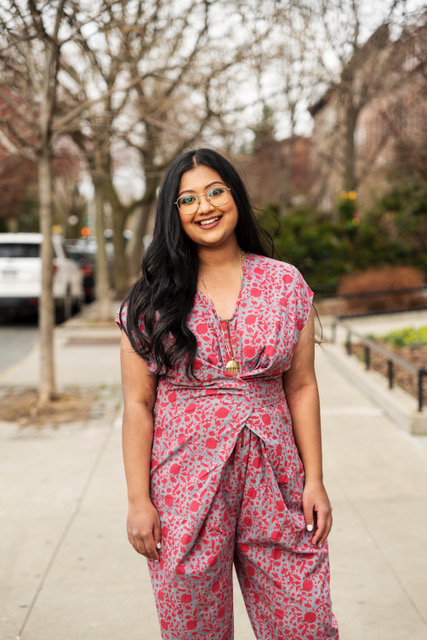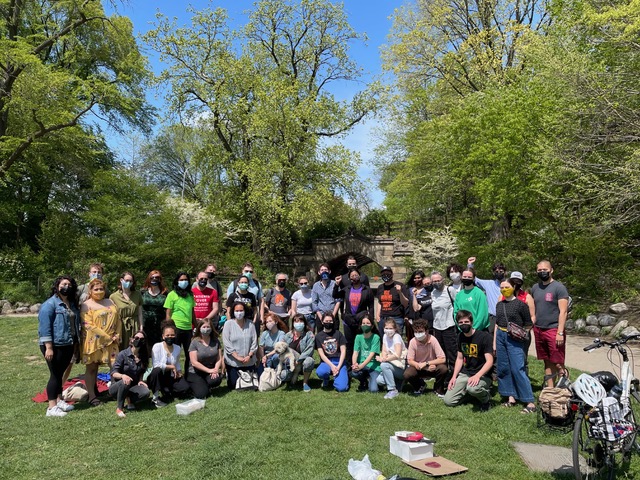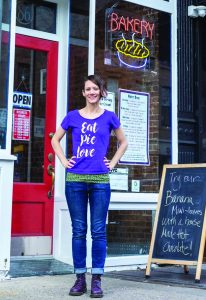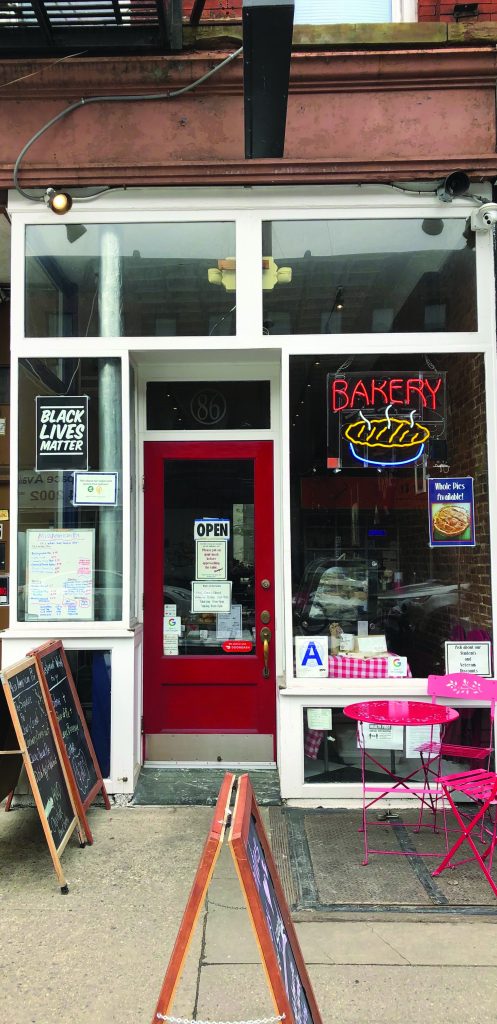The Slope Survey returns for its 19th installment with Colson’s Patisserie owner Yonatan Israel.

Yonatan was born and raised in Paris (France). He’s been a New-Yorker since 1998. After working in film, he was inspired by Hubert Colson, a family friend, to open a French-Belgian bakery. Colson Patisserie opened its doors in 2006 in Park Slope and has since expanded into wholesale distribution across NYC. Colson produces its baked goods and breads daily from Industry City where it also operates another store. Currently, he lives with his wife and three children between Tel-Aviv (Israel) and NYC.
What brought you to Park Slope?
In 2005, I was looking for a good neighborhood to open my bakery. I was living in the East Village at the time and it did not feel like the right fit. So were most neighborhoods I knew in the city. Rents were already very high and I was looking for a space that was affordable and in a community that would embrace what I was trying to do. I saw this corner space that was a decrepit bodega but seemed to have potential. As I walked out, I met my neighbor, Olivier Conan who had opened Barbes next door a few years prior. I thought that if he could do business on that corner so should I.
What is your most memorable Park Slope moment?
So many moments, so many people.
Great music next door, drinks with my staff. Michael Hearst who worked at the bakery in the early days and became one of my best friends. Many days spent in the kitchen with Hubert Colson who was so proud to have his products live on in Park Slope.
Describe your community superpower.
Our Financiers Teddy Bears.
If you could change one thing about the neighborhood, what would it be?
I never lived in Park Slope (I know, sacrilege) so I can’t really complain. It’s been good to me.
What do you think Park Slope will look like in 10 years?
Based on the amount of recent residential projects on 4th Avenue, it will probably get more crowded, even less diverse and affordable. But that’s a city wide reality and it has been for as long as I’ve been here.
What are you reading, would you recommend it?
I am reading “The kings county distillery guide to urban moonshining”. I’ve read a few books about distilling and spirits in the last year and that is one of the best ones.
I’m also researching pizza and bread again and I’ve read a few great volumes by Marc Vetri and Ken Forkish.
On the fiction side, I am in the middle of “The housekeeper and the professor” by Yoko Ogawa. Beautiful story
I am an avid but slow reader and I always dozens of books in my kindle waiting to be read. Not enough time…
What is your greatest extravagance?
I travelled with my family for 7 months starting in the summer of 2019. We were in India in March 2020 when the country closed its doors to tourists because of COVID. We ended up in Israel where my wife and kids still are. I’ve been back and forth since last summer. Taking time off or living elsewhere is something that seems inconceivable and/or impossible for most people. We were very lucky that we were able to do it. It was an incredible collective and individual experience.
If you couldn’t live in Park Slope or in Brooklyn, where would you go?
I live right now between New York and Tel Aviv. I grew up in Paris. I’ve been lucky to live in very different and wonderful cities. If I could, I would like to live in India for some time.
Who is your hero, real or fictional?
Joni Mitchell, John Coltrane, Jose Andres, Jamie Raskin, James Baldwin to name a few who’s names start with J.
Last Word, What’s is turning you on these days?
Permaculture. We need to start living and working in a way that sustains our planet and our people. Look it up!





